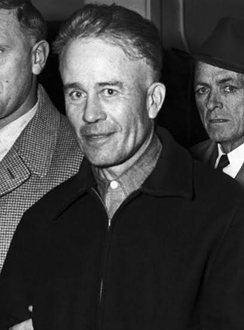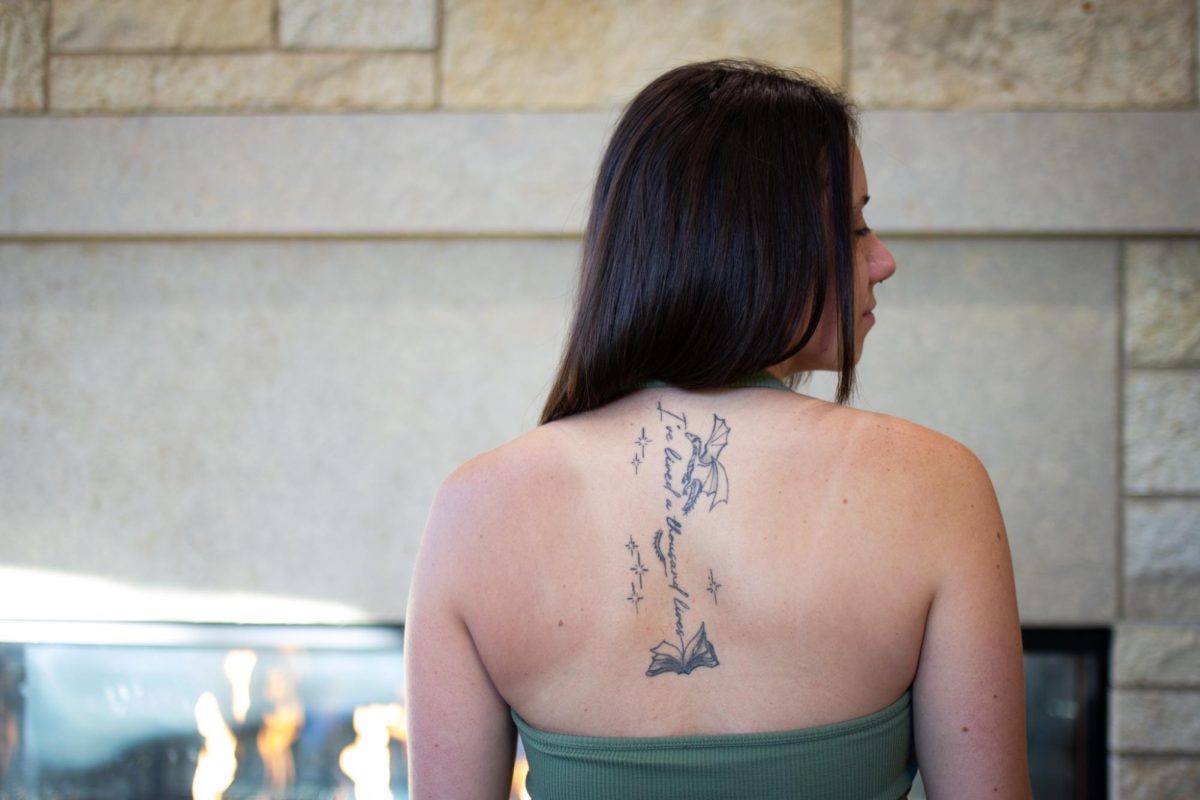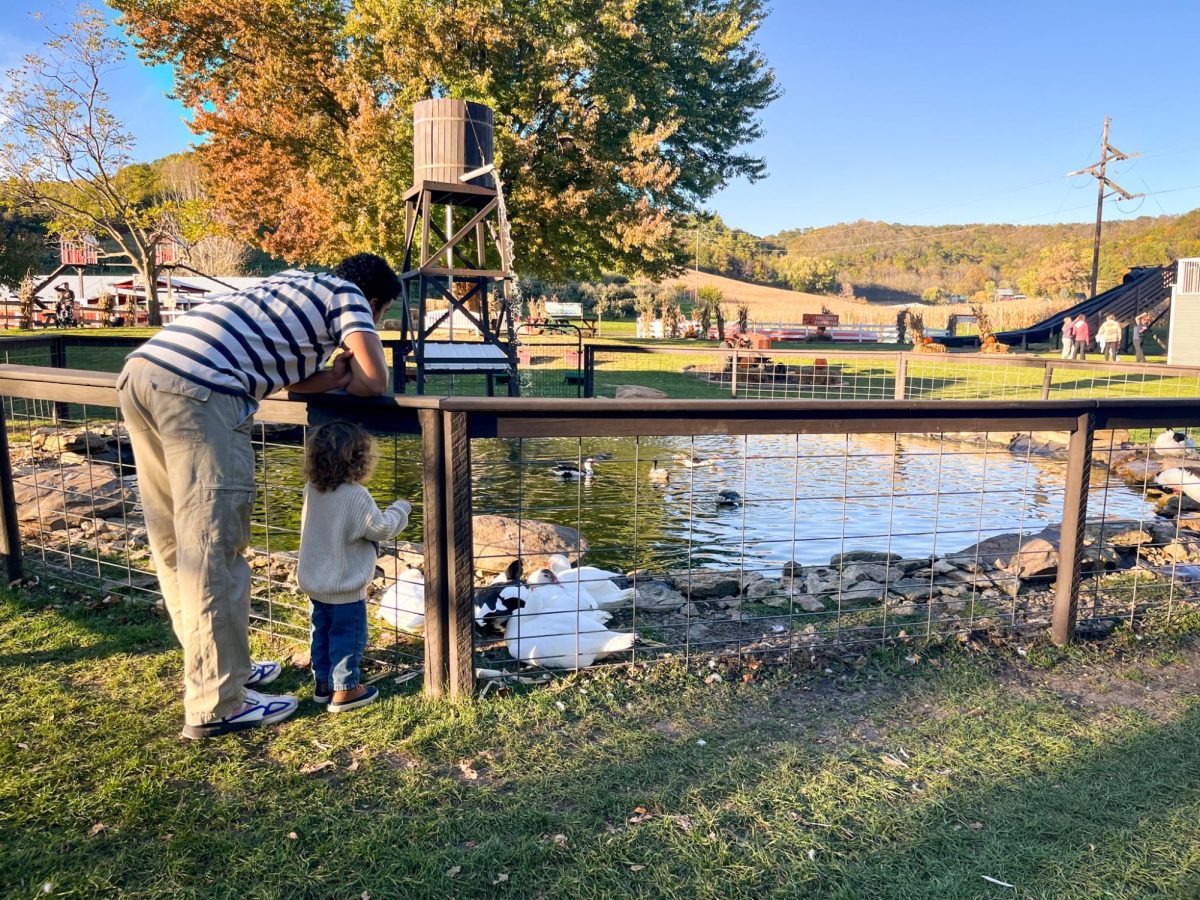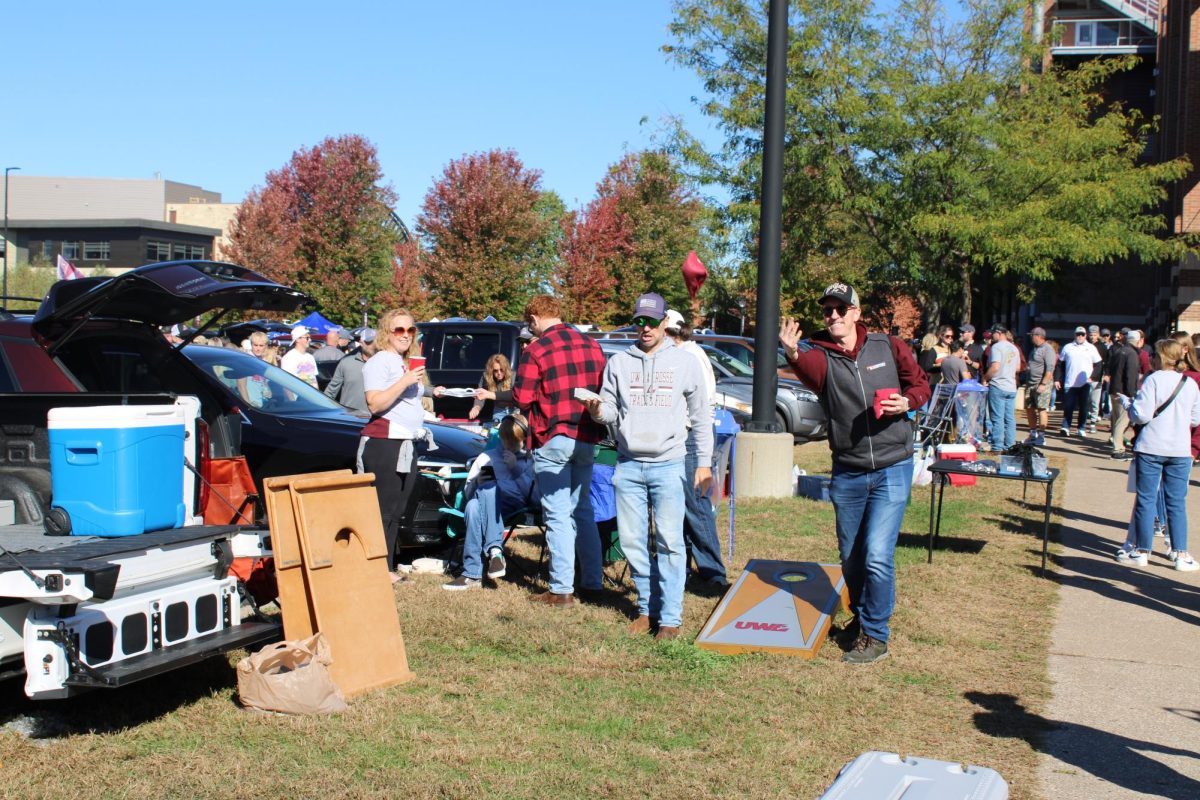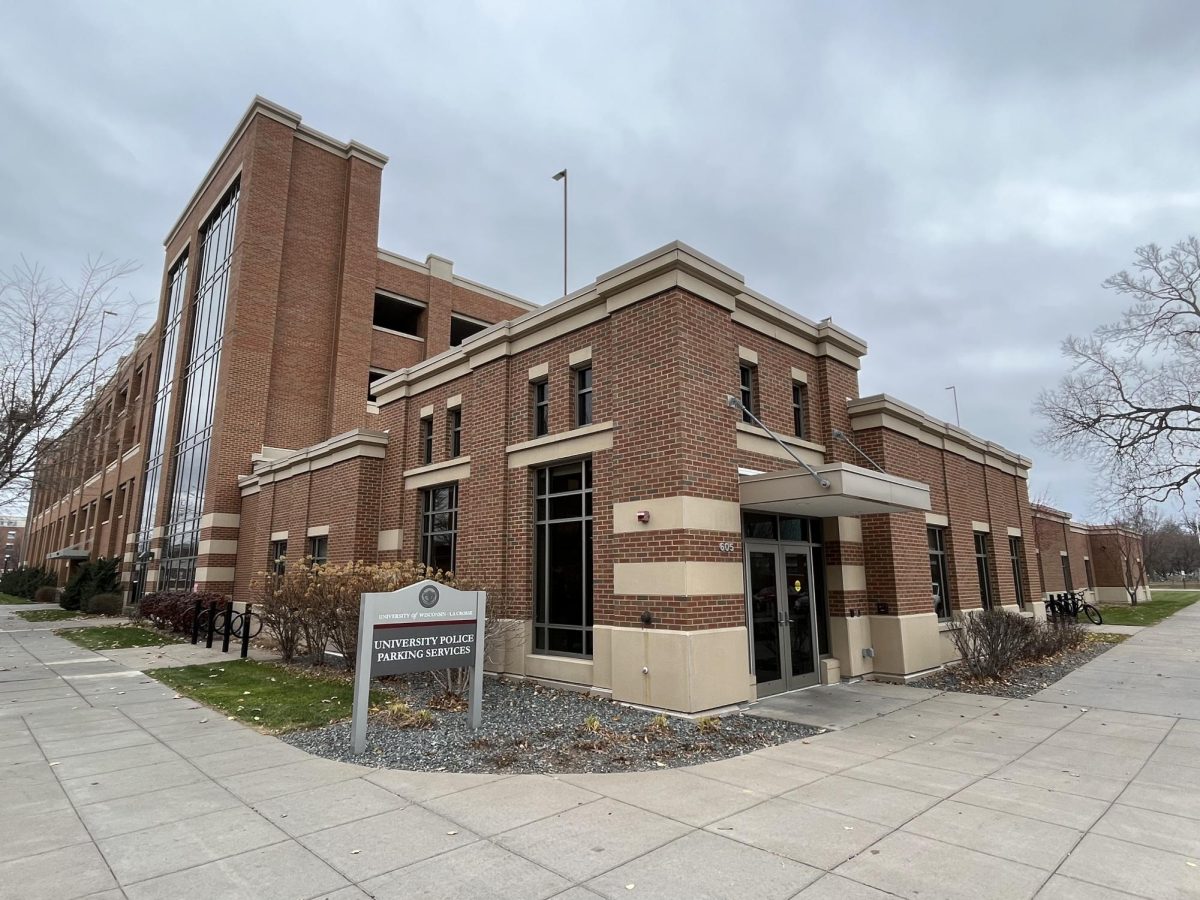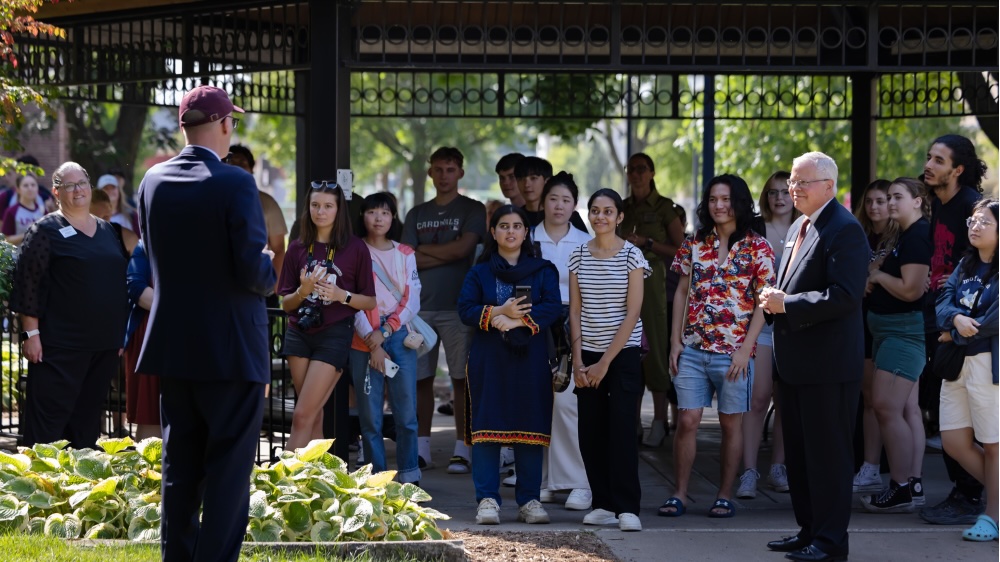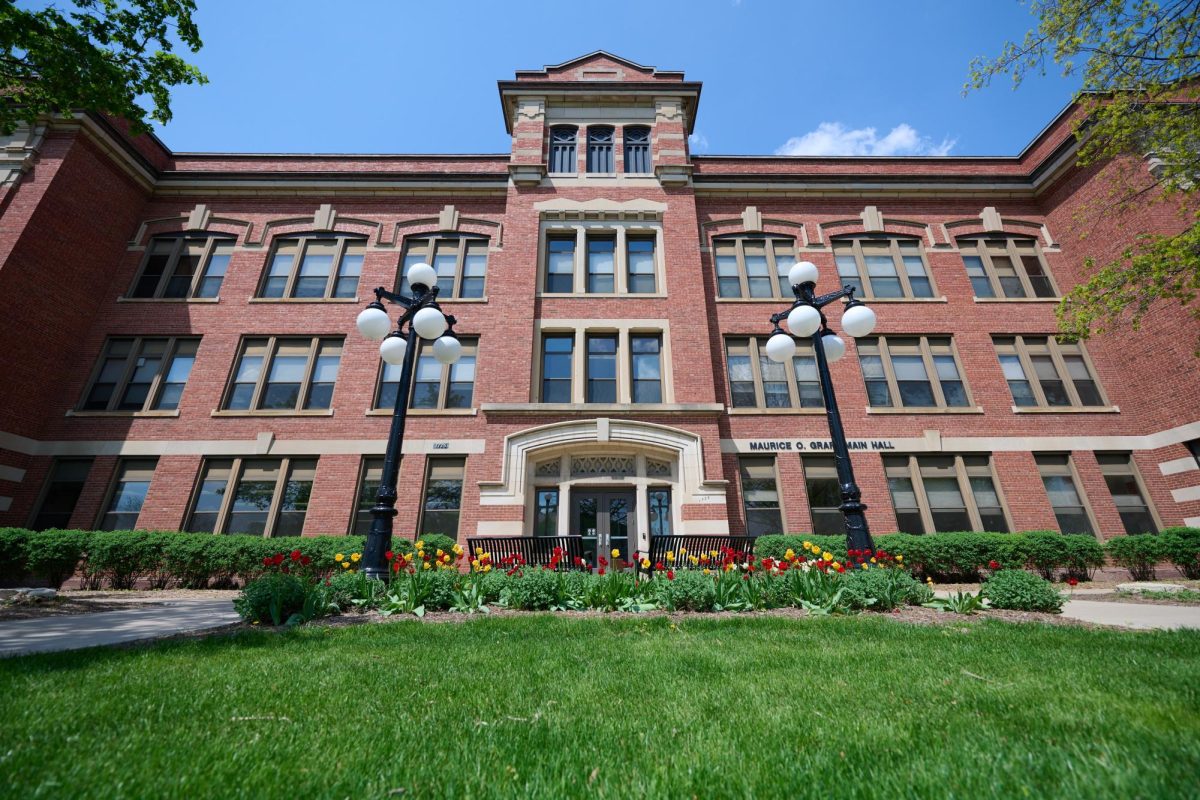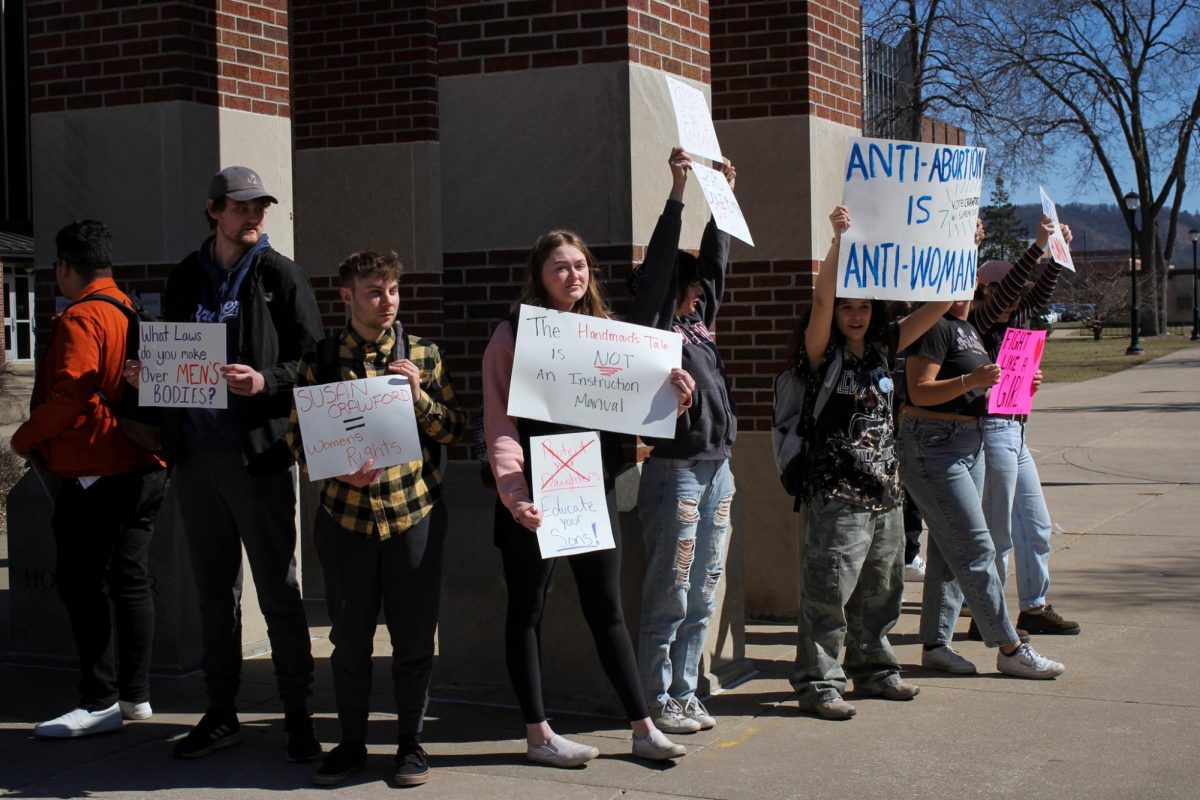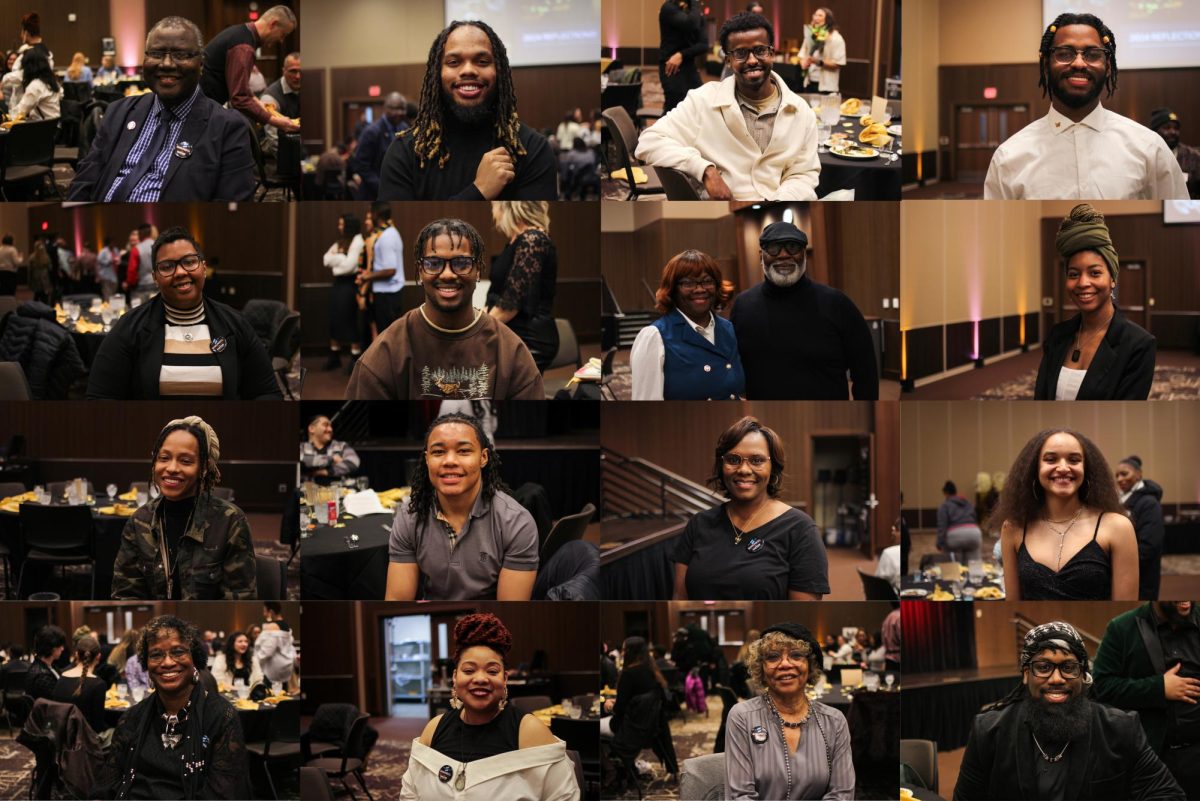Nearing two years at the University of Wisconsin-La Crosse, Sustainability Program Manager, Andrew Ericson has grown his team to a total of six staff, all of whom are students at UWL. On Wednesday, March 27, The Racquet Press sat down with Ericson and three other members of the team to discuss what has been accomplished and what projects are ongoing.
The mission of UWL Sustainability is stated below:
“The University of Wisconsin-La Crosse will provide students, faculty, staff and the community with the knowledge and skills to be environmentally responsible and involved citizens who understand and consider the global effects of their actions and the actions of others. The University will strive to use and implement sustainable best practices while minimizing its carbon footprint.”
Aside from the goal of minimizing UWL’s carbon footprint, Ericson said that one of the biggest goals is to create visibility on campus. To ensure such visibility, Ericson and his team collaborate with multiple entities; some of which include the City of La Crosse, the Universities of Wisconsin (UW) System Administration and other UWL departments to meet institutional priorities.
Sustainability Director for Student Association (SA), Grace Lopez-Johnson added that the office is promoting transportation, attempting to decrease food waste on campus, learning how to involve more students in composting efforts and raising awareness for local street gardens. She said the office is “not only increasing the visibility of sustainable options on campus but also just in the community.”
One specific project that Lopez-Johnson is working on is Earthapooloza. This annual UWL event has the goal of connecting students to multiple community and campus groups that promote sustainability and environmentalism. This year, Earthapooloza is occurring on April 26 from 3-7 p.m. on the Student Union Lawn.
In addition to her role as SA’s sustainability director, Lopez-Johnson also chairs the Green Fund Advisory Committee at UWL. Currently, she is working with the committee to pilot a composting program that is geared toward students who live off-campus. Ideally, the composting program will reduce the barriers for students who want to compost but are not afforded the opportunity or support to do so.
Eliminating food waste at Whitney Dining Center is another project the sustainability team is working on. Taking the lead on this project is Keila Kittelson, a public/community health major and preceptee in Ericson’s office. Kittelson stated how food waste is both an environmental and social issue with 1 in 3 college students being food insecure.
Kittelson said, “Take what you want, but eat what you take.” This motto was coined after Kittleson and the team calculated that 3-4 ounces of food is being wasted per meal, per student each day. She also stated how ⅓ of food intended for human consumption in the United States is wasted, stressing the importance of food waste reduction.
The team is also piloting a dumpster diversion program in collaboration with Habitat for Humanity of the Greater La Crosse Region. Since large item pick-up will no longer be an option for students during move-out in May, the dumpster diversion program will offer students an alternative to disposing of unwanted large items.
During the second week of May, container-like pods will be placed on campus for students to donate large items such as sofas, tables, dressers and more. Once campus move-out is complete, Habitat for Humanity of the Greater La Crosse Region will pick up the items and give them to families in need.
The fruition of sustainable projects like the ones listed above is sometimes not possible without some amount of funding. That is where UWL’s Student Green Fund Coordinator, Cass Ziegler comes in. The UWL Green Fund is a student-run entity that gives students the financial means to a more sustainable campus. As part of its process, students, faculty and staff must submit Green Fund requests to the Joint Committee on Environmental Sustainability (JCES).
To assist those unfamiliar with the grant writing process, Ziegler offers help throughout the entire grant funding process. Green Fund grant requests are broken down into two categories: mini-grants, which include any requests below $5000, and large-grants, which include any requests above $5000. Mini-grants only need to be approved by JCES. Whereas, large grants need to be approved by JCES, the Segregated University Fee Allocation Committee (SUFAC) and SA.
Recently, JCES passed a mini Green Fund grant to bring sustainable products to UWL’s food pantry, located on the second floor of the Student Union. These sustainable product alternatives include reusable produce bags, wool dryer balls, bamboo toothbrushes, diva cups and more.
If students are interested in a more hands-on approach to the Green Fund, the team is hiring for a Co-Student Green Fund Coordinator. The future new hire would be trained by Ziegler and work in partnership with her to coordinate the Green Fund. “[Being the Student Green Fund Coordinator] has been such a unique way to develop skills and make connections,” said Ziegler.
To conclude the discussion, The Racquet Press asked if anyone from the team had any advice for students and community members regarding the work they do with UWL Sustainability. “Anybody can be sustainable, it doesn’t take an entire life reset to start doing the little things to become a more sustainable citizen,” said Lopez-Johnson.
“Find that joy in doing the sustainable thing,” said Ericson.



